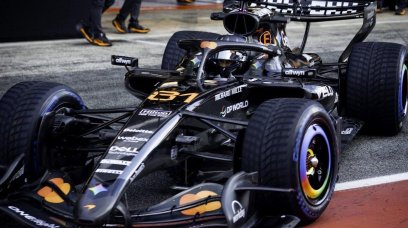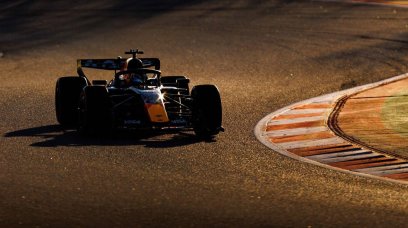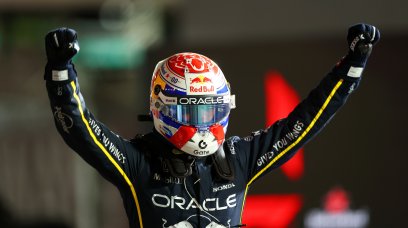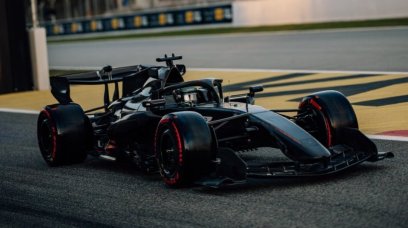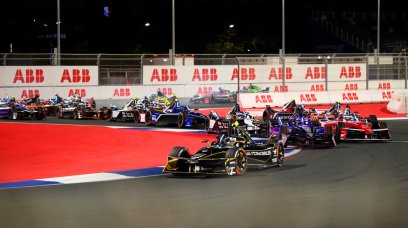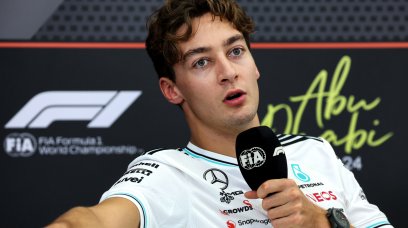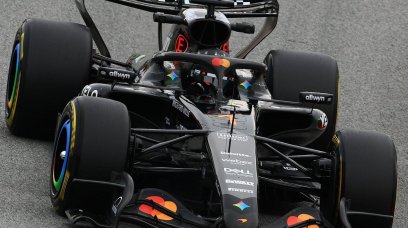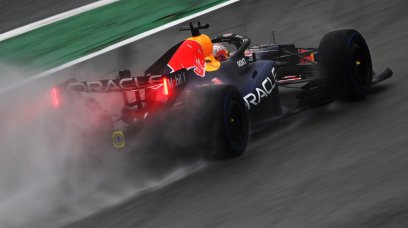To be talking about the idea of Lewis Hamilton retiring from Formula 1 is unsettling, for it only seems like yesterday he was the fresh-faced 22-year-old dancing the McLaren promptly around the outside of teammate Fernando Alonso at the first corner of the 2007 Australian Grand Prix. Whether it be Alonso, Sebastian Vettel, Nico Rosberg or Max Verstappen (in battle, anyhow) Hamilton has defeated all before him, and it only took a one-off interpretation of the Safety Car rulebook to deny him a record-breaking eighth title in 2021. But there is one rival he cannot, and will not beat. It is one that claims the career of every sportsperson in the end: father time. Hamilton is a lot closer to retirement from F1 than he is the start of his career, so it is only a matter of time before that press release from Mercedes drops and Google Trends sees a marked increase in searches for 'Lewis Hamilton.' His Mercedes boss Toto Wolff recently said Hamilton could go on for another five-years beyond the end of 2022. That's the end of the 2027 season, his 21st in F1 and by the end of which he'll be 42 - having spent half of his life as an F1 driver. But will Hamilton do this - what does history tell us about F1 drivers in their 40's and what does the rest of motorsport suggest?
What do Wolff and Hamilton say?
In a recent interview with Channel 4, Mercedes boss Wolff revealed that he had spoken to Hamilton about the future, and what his plans were. "We speak a lot together, and [a few weeks ago], we sat down and he says: 'Well, I have another five years in me.' "He's the shining star in Formula 1, on and off track, I think we would lose the greatest personality that Formula 1 ever had." A ringing endorsement then from the boss - and the man himself has recently admitted that had he won the title in 2021 and Mercedes were competitive in '22, he would be in a "different" place mentally about his future. So, it seems like Hamilton is going to stick around for the medium-term, but what are the pros and cons of doing this?
The pros of Lewis Hamilton staying
Firstly, Hamilton is a winner. He will want to go out on his own terms, at a time of his choosing, preferably at the top where he feels he rightfully belongs. Someone who has seven championships and 103 wins, at the time of writing, will not go out with a sixth-place finish in the standings and a fourth place in his final race. And that makes Mercedes' 2022 predicament actually a positive in getting Hamilton to stay. It gives him the last big challenge of his career, one last hurrah to get the stumbled behemoth back to the front before bidding auf wiedersehen to the paddock. With the team now knowing of a deep-rooted problem in the design of the W13, 2023's W14 will see this rectified. However, whether the improvements made will be enough to draw it somewhere near the dominant Red Bull squad or a sure to improve Ferrari (they can't be any worse) remains to be seen. But having turned Mercedes from also-rans to the all-conquering giant it is today, Hamilton has this final push in him - and in the process will train George Russell with all his technical knowledge and know-how. Once Hamilton does go, that'll be something Mercedes cannot replace. Away from the track, Hamilton staying in F1 is also the best platform to use his voice to continue to push for social change. He and Vettel have become the elder statesmen of F1 and are using their unique positions as multiple World Champions to push the series into highlighting social problems and solutions. For example, Vettel immediately supported Hamilton when some drivers started to take a knee in 2020, while both defended LGBT rights in countries and regions such as Hungary and the Middle-East. Whereas Vettel's 'voice' might fade a bit as an ex- F1 driver, Hamilton's global appeal is such that even when he does quit, his will still be a voice that carries an immense amount of weight. That being said, standing inside the tent talking out is a far better place rather than vice versa.
The cons of Hamilton staying
Over time, the Prost era gave way to Senna, and then to Schumacher, Alonso , Vettel and then finally Hamilton. 2014-2021 will forever be the Lewis Hamilton era in F1 where he went from 'normal F1 World Champion' to superstar status across the globe, placing him among the likes of Roger Federer, Serena Williams, Usain Bolt, and Tiger Woods. But that era is now firmly closed. Formula 1 is now in the Max Verstappen era. It was a particularly violent way for the baton to change hands, but in yanking Hamilton's vice-like grip off the World Championship trophy, Verstappen has set up a possible decade of domination. Red Bull is well set until the 2026 rules reset, and as long as Adrian Newey continues to work his magic, there is no reason for Verstappen to switch teams. Although Hamilton will want to go out as World Champion once again - he may not get that chance. Sportspeople don't always go out on top. Tom Brady is unlikely to win another Super Bowl in this, his likely final season in the NFL. Bolt pulled up injured in his final Athletics race in 2017; Federer lost his final ever professional match, in the Laver Cup recently in London; Woods is never going to get back to his brilliant best after those serious injuries he sustained in that 2021 car crash. Fairytale endings don't happen in professional sport. It evolves too quickly. If Hamilton is hoping for a final swansong, he is unlikely to get it. Although he is still driving at a fantastically high level, the car just isn't there at the moment. So, although the fat lady hasn't started to sing yet, she has cleared her throat and is beginning to warm-up.
What does wider motorsport tell us?
40-somethings racing in F1 is nothing new - with two distinct eras of it happening. In the nascent World Championship, drivers such as Juan Manuel Fangio and Giuseppe Farina were in their 40s before they even raced in the World Championship. Farina was 44 when he took the 1950 title, while Fangio was 46 years, 41 days when he took his final crown in 1957. After the early 1950s, drivers generally became younger as the likes of Jim Clark and Jackie Stewart arrived in the 1960s. This was a dangerous era for F1, with drivers generally not sticking around for long or being killed in their late 20s or early 30s. Indeed, Stewart retired as a three-time World Champion in 1973 at 34. Fast forward to the modern day, the likes of Schumacher, Alonso and Kimi Raikkonen have all raced into their 40s. Here, Alonso is the exception, still performing at a high level, and set to be on the grid until he is 43 at least. As for Schumacher and Raikkonen - they both faded badly the wrong side of 40 and were not the same as in their prime. Elsewhere in motorsport, in IndyCar, the standard-bearer remains Scott Dixon. Now 42, Dixon is a perennial title contender and has won races every year since 2005. Only a 1mph overspeed in the pit-lane at the Indy 500 cost him victory there for a second time - and the '22 title in the end. Meanwhile, over in NASCAR, 40-somethings racing is far more common than in single-seaters - although even here, the times, they-are-changing. Veterans like Kevin Harvick (46), Martin Truex Jr (42) and Denny Hamlin (40) are now in danger as the new generation led by the likes of Chase Elliott and Tyler Reddick (both 26) are coming. Indeed, in the 2022 Playoffs, of the eight drivers remaining, only Hamlin is 40 or over. As for Hamilton in F1, it is perfectly plausible that he does race on until he is 42, but as the winds of change and time sweep through all of motorsport, the prospect of him being on the 2027 grid seems remote.
Most read
